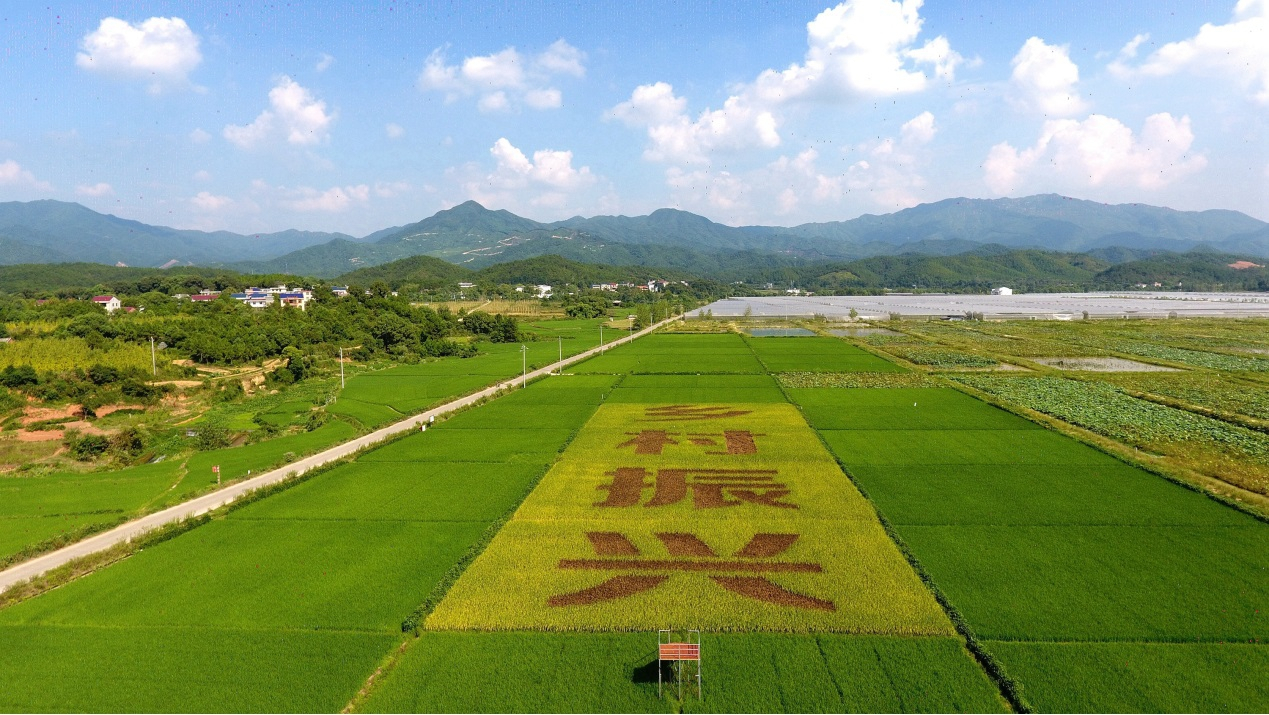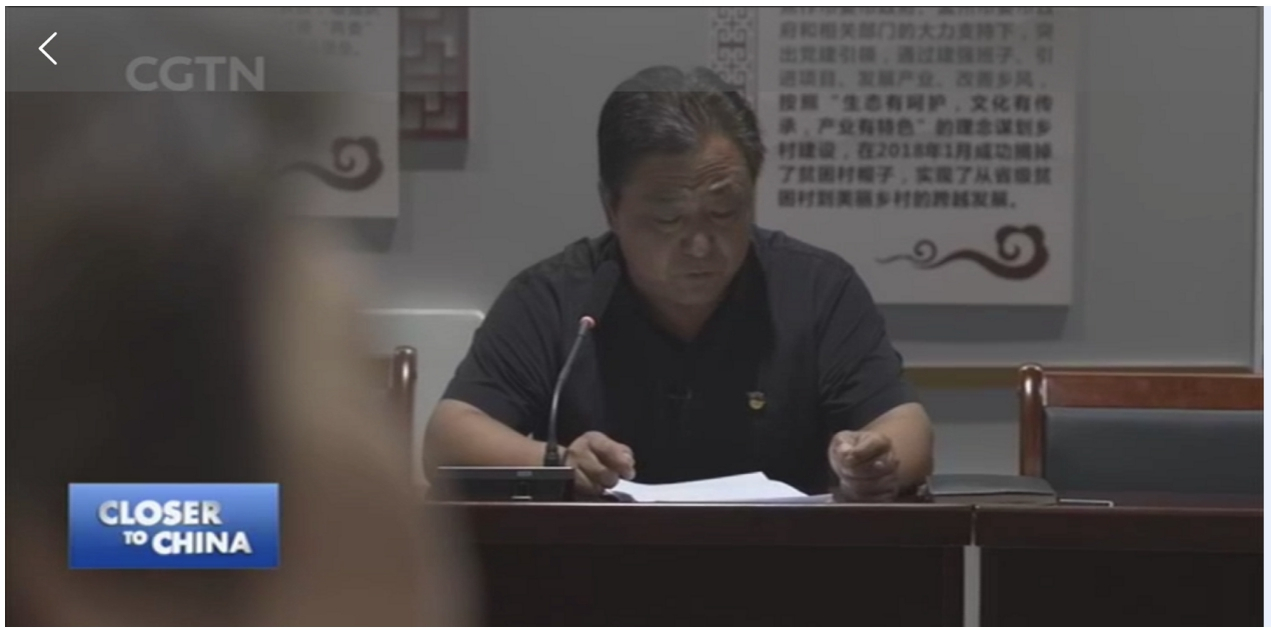
15:36, 10-Sep-2019
Highlight - Can rural governance make rural vitalization more effective?

After eliminating poverty in 2017, Yuangou Village is working hard to build thriving businesses to help realize the goal of rural vitalization. Besides greenhouse planting, Yuangou is also seeking to launch other businesses.
As one of the pilot villages in Mengzhou City of Henan Province, Yuangou Village is promoting the reform of the rural collective property rights system, gathering resources and assets in the village - land, for example - to make them collectively owned. Each villager registers to become a shareholder, owning equity based on his or her conditions, like age and hukou (household registration status) and so on, and then they can receive dividends from the collective revenue.
After villagers came to the village committee office to register, members of the village committee and village Party branch gathered in the yard, discussing the remaining questions and work. Given the huge amount of the workload, now evening meetings have become routine for the Yuangou Village committee and village Party branch.
"The grassroots work is very complicated and difficult since you have to handle things from numerous households every day," said Tang Changjun, Party secretary of Yuangou Village.
Tang Changjun used to make money by raising pigs. Due to both his integrity and mastery of making money, Tang was chosen by the CPC members of the village as Party secretary of Yuangou Village in 2011.
According to Tang, although the monthly salary he earns now as village Party secretary is less compared with his past pig-raising business and the workload is much heavier, he is determined to work hard wholeheartedly to serve the village.

Tang Changjun, Party secretary of Yuangou Village, is conducting a meeting/ CGTN Photo
Tang Changjun, Party secretary of Yuangou Village, is conducting a meeting/ CGTN Photo
On July 23, the Central Committee of the Communist Party of China and the State Council jointly issued a document on improving rural governance. The document aims to promote the governance capacity to consolidate the grassroots basis of rural vitalization.
According to the document, an institutional framework and policy system of rural governance should be basically built by 2020. By that time the construction of rural grassroots organizations led by the Party organization will be enhanced and the rural governance system will be further improved to serve the goal of rural vitalization.
What is the current rural governance system? How to motivate grassroots officials to better serve the goal of rural vitalization?
To explore this question, Closer to China sits down with Professor Zheng Fengtian, School of Agricultural Economics and Rural Development, Renmin University of China.
According to Zheng Fengtian, concerning rural governance, China has Party secretaries at five levels to be held accountable for targeted poverty alleviation; now Party secretaries at five levels have also been called on to be responsible for rural vitalization.
Party secretaries at the provincial, municipal, county, township, and village levels should respond to the grand goals set by the CPC central committee.
It is an integral rural governance system. To fulfill the grand goal set by the CPC central committee, province, municipality, county, township and village each has its own plan. The lower level authority should fulfill duties assigned by the higher level, and the higher level authority should supervise the lower level.
Zheng states the CPC central committee has promised that Party secretaries at five levels will get promoted if they have their work done well. Such a promotion mechanism has proven to be effective.
Those who fail to do their work will definitely be punished. For example, a county Party secretary ranks at the bottom of performance within a group of similar counties would be demoted and transferred to somewhere else.
SITEMAP
Copyright © 2018 CGTN. Beijing ICP prepared NO.16065310-3
Copyright © 2018 CGTN. Beijing ICP prepared NO.16065310-3